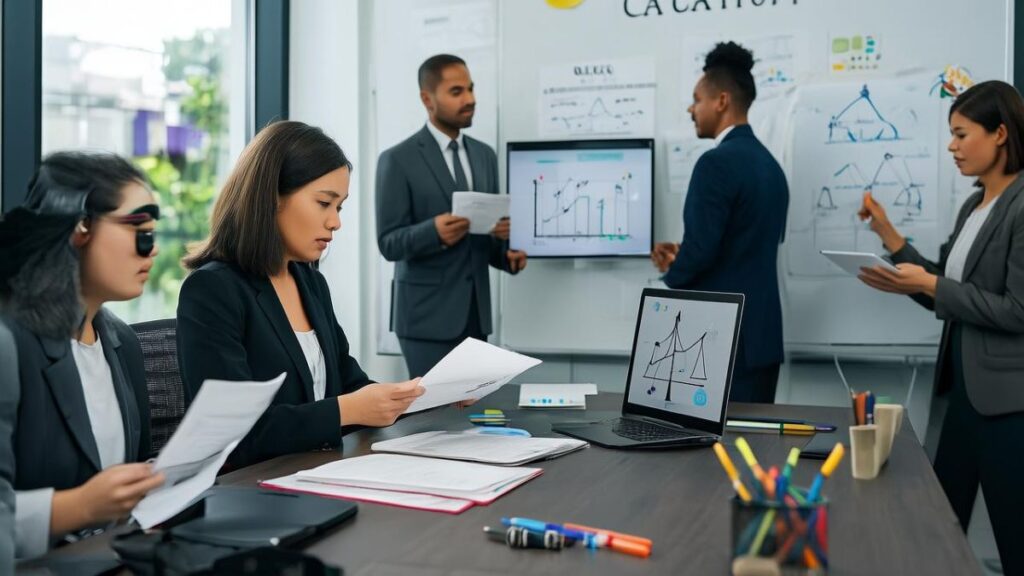Key Takeaways
- Effective communication bridges the gap between technical data and legal teams.
- Attention to detail ensures accuracy in managing vast amounts of information.
- Proficiency in e-discovery tools and data management is crucial for handling electronic evidence.
- Strong problem-solving abilities enable specialists to navigate unexpected challenges.
- Adaptability allows specialists to stay current with evolving legal technologies and practices.
Success in the legal industry rests on a complex web of skills, resources, and roles, but one of the most valuable assets often goes unsung: the litigation support specialist. Litigation support specialists combine technical expertise, legal knowledge, and interpersonal skills to help legal teams achieve efficient outcomes by understanding databases, managing electronic evidence, and translating complex information into actionable insights. The demand for these specialists is increasing due to digitization, data governance practices, and electronic evidence, enhancing team performance and regulatory compliance.
Effective Communication
Litigation support specialists are responsible for deciphering complex datasets, extracting meaningful insights, and distilling them for attorneys and legal professionals. They can articulate the significance of e-discovery findings and concisely present digital evidence analysis, allowing legal teams to act faster and more confidently. Written communication, such as case reports and resource documentation, is vital for creating a clear project record and bridging gaps between IT departments, external vendors, and internal teams.
Attention to Detail
Litigation support specialists are crucial in maintaining the integrity of the legal process by meticulously reviewing, sorting, labeling, and cross-checking files, databases, and digital records. Their diligence supports successful litigation and instills trust in clients and colleagues, reinforcing a firm’s reputation for reliability and accuracy. By consistently upholding these standards, specialists act as the quality control backbone of the legal team, reducing costly errors and ensuring compliance with industry norms and regulatory requirements.
Technical Proficiency
Litigation support specialists must be proficient in modern legal technologies like e-discovery platforms, databases, and AI tools. They must also be knowledgeable in cybersecurity to protect sensitive information. Regular certifications and training are crucial for maintaining security. Expanding their technical toolkit can enhance a law firm’s agility, resilience, and litigation strength. E-discovery tools manage electronic evidence, prioritize search parameters, implement keyword strategies, and design workflows.
Problem-Solving Abilities
Litigation support specialists must be prepared to handle unexpected problems in legal proceedings, including technical issues and procedural snags. They need strong troubleshooting instincts and analytical thinking to diagnose root causes and implement solutions. They use their technical training and experience to forge contingency plans and demonstrate creative flexibility, saving time and resources, and enhancing the resilience and preparedness of legal teams.
Adaptability
Legal technology constantly evolves, and the most effective litigation support specialists adapt to new systems, regulatory changes, and innovations. They must be humble, anticipate trends, and be open-minded to test and refine workflows. Adaptability helps maintain a competitive edge by integrating new tools and procedures. Specialists supplement their technical training with resources like webinars and conferences to stay updated and ahead of the industry.
Time Management
Litigation specialists must excel in time management to meet fixed deadlines and balance urgent data requests, court submissions, technical documentation, and client communications. Regular audits, identification of bottlenecks, and optimization of workflows are crucial for delivering high-quality outputs. This efficiency enhances the legal team’s productivity, ensuring an agile and robust litigation strategy. Accurate prioritization of tasks, datasets, and deliverables allows specialists to focus resources effectively, preventing emergencies and ensuring smooth project execution.
Team Collaboration
Litigation support is inherently collaborative, hinging on seamless coordination among attorneys, paralegals, IT teams, and external partners such as expert witnesses or technology vendors. Effective specialists cultivate strong working relationships, engendering trust and encouraging open exchange of information. They create a culture of teamwork and mutual respect through regular check-ins, shared documentation, and clear communication channels. This collaborative approach bolsters efficiency, ensures that each legal team member is informed and aligned, and enables innovative problem-solving through the pooling of collective expertise. As remote work and hybrid teams become the norm, these skills are only growing in significance, driving better outcomes for both individual cases and the organization as a whole.
Emotional Intelligence
Litigation support specialists need high emotional intelligence to handle high-pressure deadlines and client expectations. They maintain composure, empathy, and focus on solutions, fostering resilience and a supportive work environment. This emotional stability boosts morale, job satisfaction, and performance. Developing these skills is not just a professional goal but a strategic imperative. Firms investing in training, modern tools, and knowledge-sharing can reduce litigation risk, protect sensitive information, and improve case outcomes. Building a resilient team requires long-term commitment to education, resources, and industry standards.







